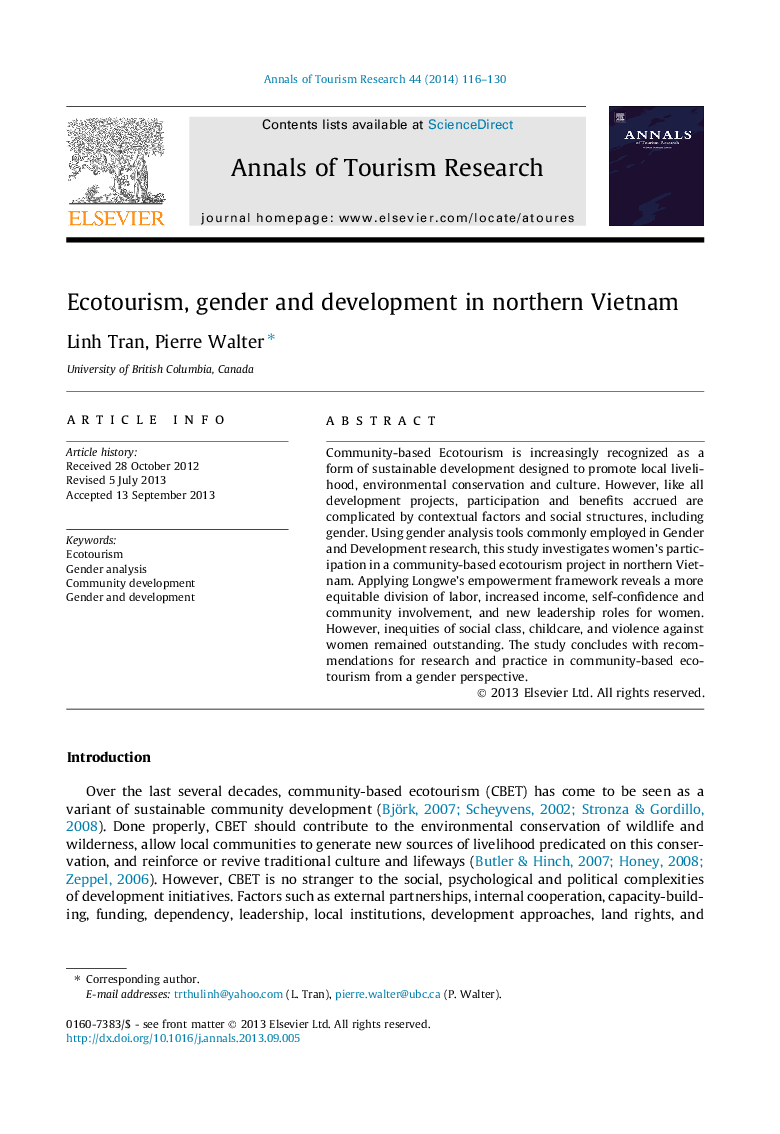| کد مقاله | کد نشریه | سال انتشار | مقاله انگلیسی | نسخه تمام متن |
|---|---|---|---|---|
| 1007123 | 1482252 | 2014 | 15 صفحه PDF | دانلود رایگان |
• Argues for application of gender analysis tools to community-based ecotourism.
• Presents gender analysis in empirical research on an ecotourism project in northern Vietnam.
• Findings on changes in gender roles and relations as a result of participation in the project.
• Recommendations for gender analysis in research and practice of community-based ecotourism.
Community-based Ecotourism is increasingly recognized as a form of sustainable development designed to promote local livelihood, environmental conservation and culture. However, like all development projects, participation and benefits accrued are complicated by contextual factors and social structures, including gender. Using gender analysis tools commonly employed in Gender and Development research, this study investigates women’s participation in a community-based ecotourism project in northern Vietnam. Applying Longwe’s empowerment framework reveals a more equitable division of labor, increased income, self-confidence and community involvement, and new leadership roles for women. However, inequities of social class, childcare, and violence against women remained outstanding. The study concludes with recommendations for research and practice in community-based ecotourism from a gender perspective.
Journal: Annals of Tourism Research - Volume 44, January 2014, Pages 116–130
